Are you curious about how to enhance candidate experience in your hiring process? Understanding the sentiments of your job applicants can provide invaluable insights that lead to significant improvements. By implementing a candidate satisfaction survey, you can gather feedback that not only reflects their experiences but also shapes your future recruitment strategies. Join us as we explore effective letter templates for gathering this essential information and learn how to engage your candidates more effectively.

Personalization
Creating a personalized approach to candidate satisfaction surveys can significantly enhance response quality. Candidates appreciate acknowledging their unique experiences during the hiring process. Using their name in the introduction fosters a welcoming atmosphere, while tailoring questions based on the specific role they applied for, such as Software Engineer or Marketing Manager, reflects genuine interest. Providing context by including the interview date or the names of interviewers can make surveys feel more relevant. Customizing feedback questions to address areas like communication clarity during the recruitment phase or overall candidate experience within companies like Google or Amazon can yield insightful data crucial for improving hiring practices. Ending with a personal note of appreciation for their time furthers strengthens the candidate's connection to the organization.
Clear Objectives
The candidate satisfaction survey serves as a valuable tool for organizations to gauge their recruitment process effectiveness and enhance candidate experience. This survey aims to identify specific areas for improvement, including communication clarity, feedback quality, and overall candidate perceptions. By focusing on key metrics such as response time (ideally within 48 hours), interview process transparency, and alignment of job descriptions with actual responsibilities, organizations can develop actionable insights to refine their hiring strategies. Gathering data from diverse candidate demographics, including those who were hired, interviewed, or rejected, allows for a comprehensive analysis of the recruitment experience, fostering continuous improvement and promoting a positive brand image in the talent marketplace.
Concise Questions
Candidate satisfaction surveys are essential for understanding the recruitment experience. Questions should cover aspects such as application process clarity, interviewer professionalism, communication effectiveness, and overall satisfaction. Include specific metrics, such as rating the feelings on a scale of 1 to 5, with 1 indicating dissatisfaction and 5 indicating high satisfaction. Additionally, ask for insight on areas needing improvement and the likelihood of recommending the process to others. Focused feedback can drive enhancements in recruitment strategies and promote positive experiences for future candidates.
Confidentiality Assurance
Confidentiality assurance is crucial in candidate satisfaction surveys to ensure participants feel secure in providing honest feedback. Anonymity of responses is maintained by using unique identifiers instead of names, allowing data analysis without exposing individual identities. Secure data storage protocols, such as encryption and restricted access, protect the information collected during the survey process. Results will be analyzed in aggregated forms, ensuring no single participant's input can be traced back. This commitment to confidentiality helps foster trust, ultimately leading to more constructive insights into the candidate experience within organizations, potentially enhancing recruitment practices and overall job satisfaction in future hiring processes.
Call-to-Action
Conducting a candidate satisfaction survey is crucial for understanding the candidate experience during the recruitment process. Insights gained from surveys can lead to improvements in hiring practices and overall company reputation. Encouraging candidates to share their feedback helps create a positive cycle of continuous improvement. By participating in the survey, candidates can voice their opinions about application processes, interview experiences, and communication effectiveness. This valuable information ensures that potential future employees feel supported and valued throughout their journey. Engaging candidates in this feedback loop demonstrates a commitment to enhancing the hiring experience and empowers them to contribute to meaningful changes within the organization.

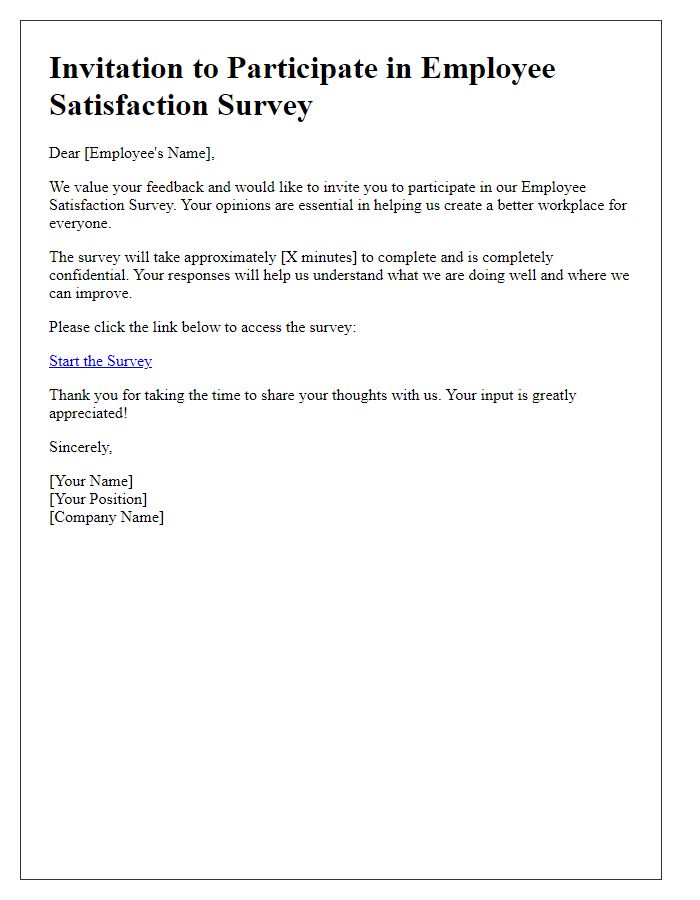
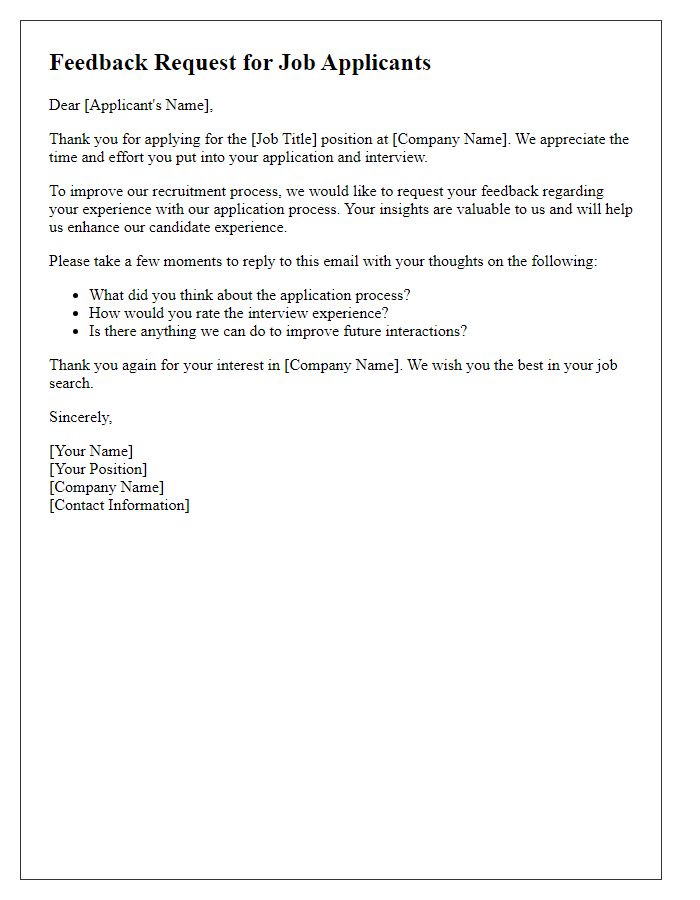
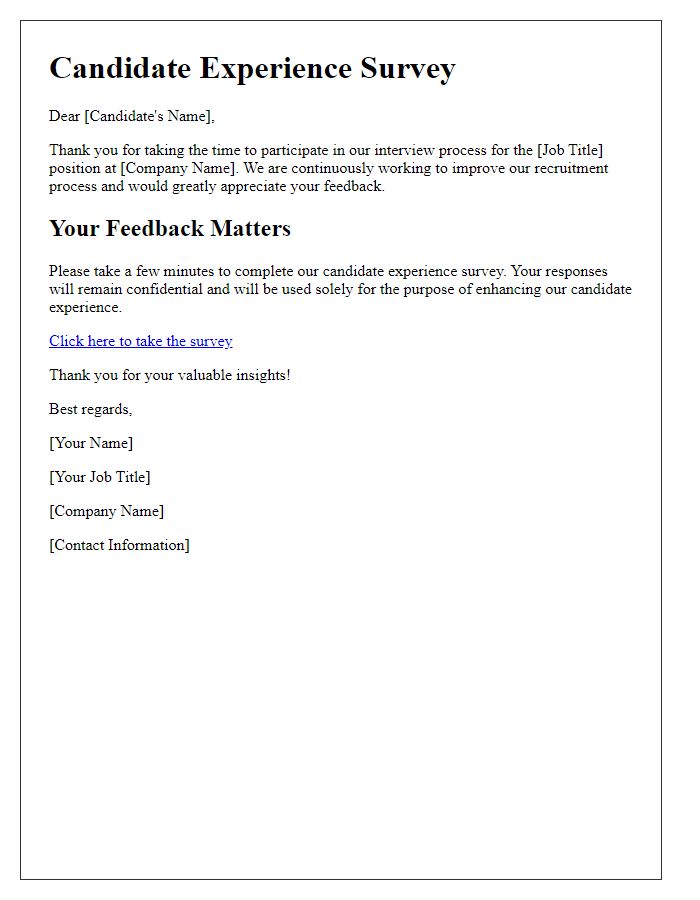
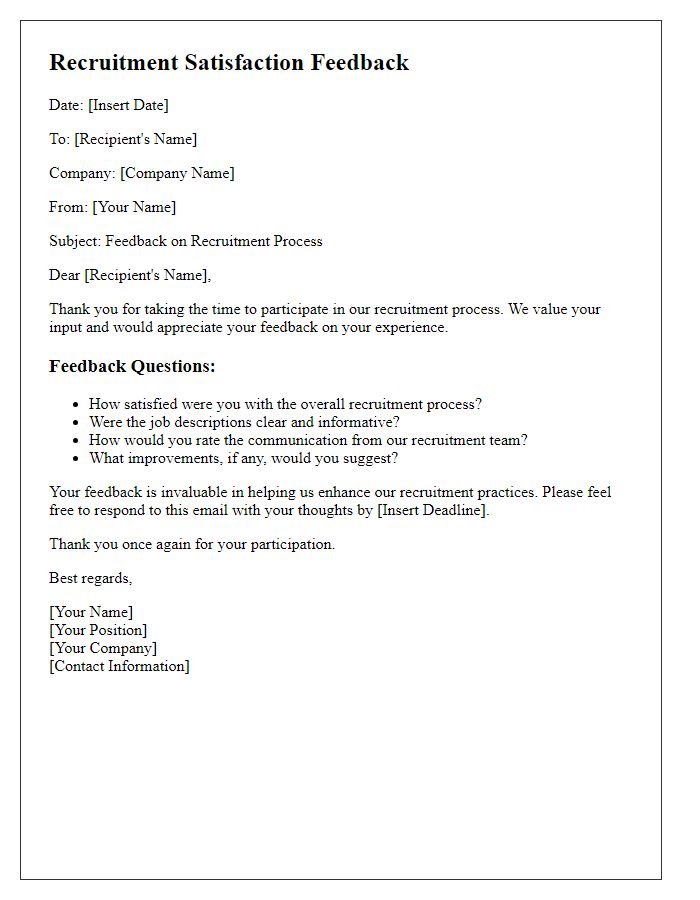
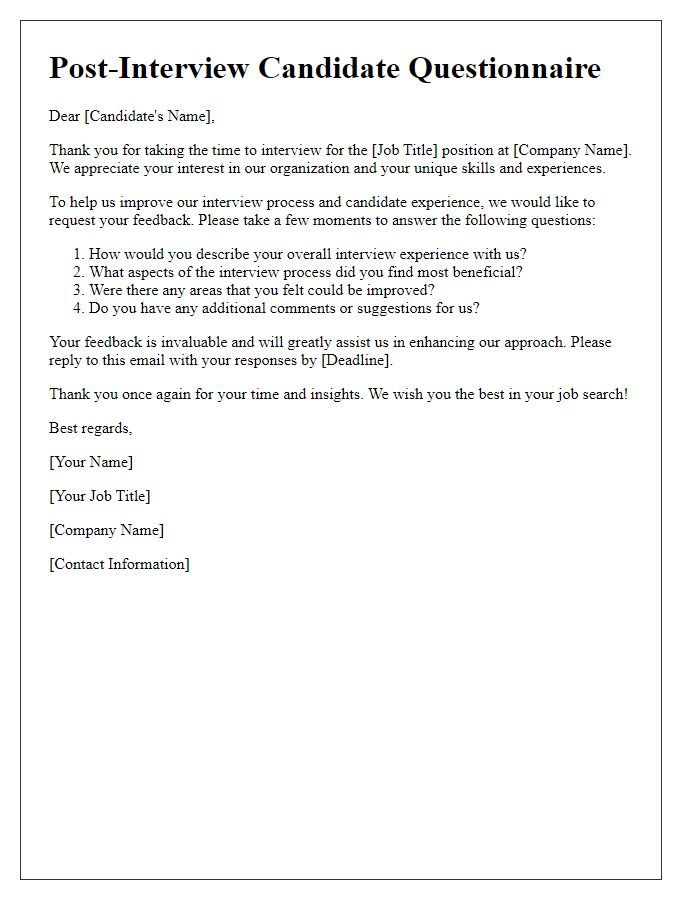
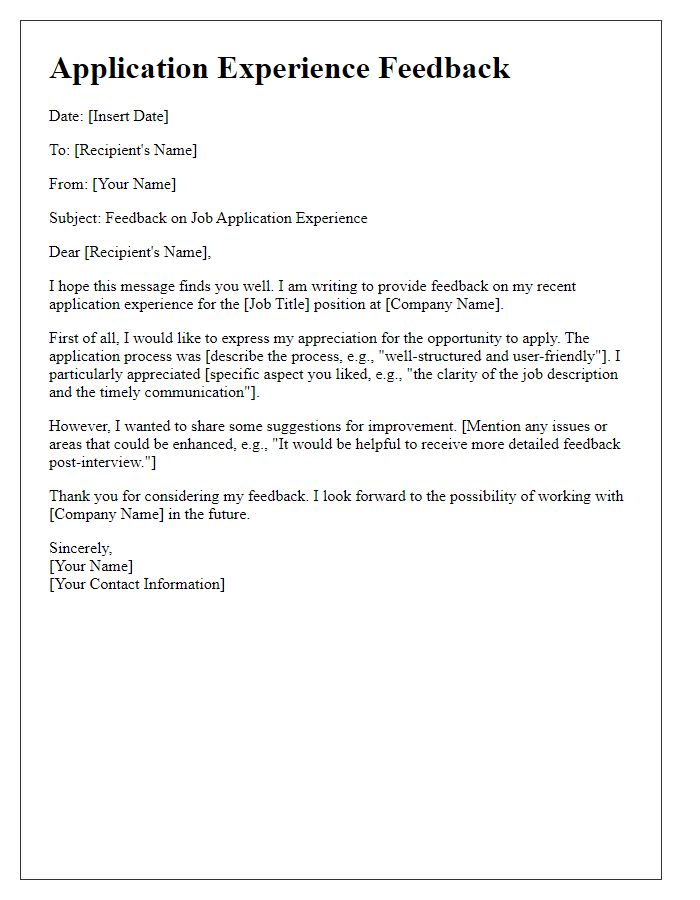
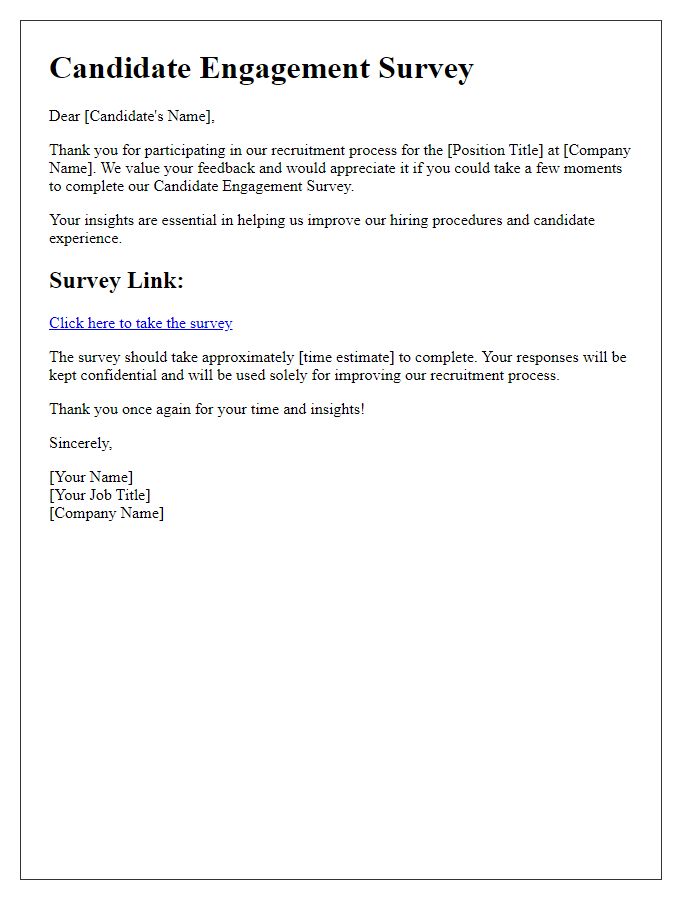
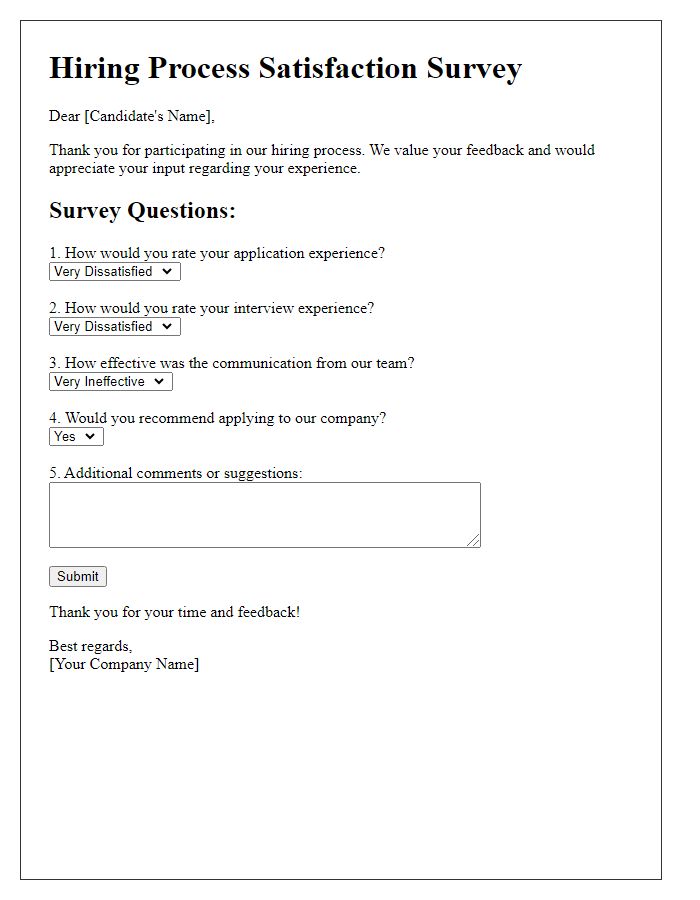
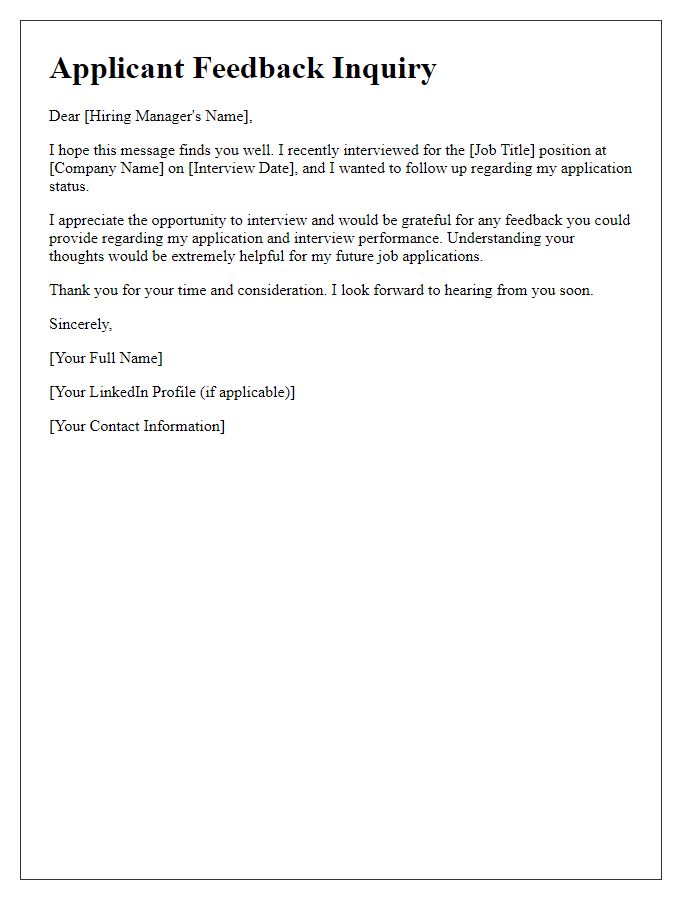
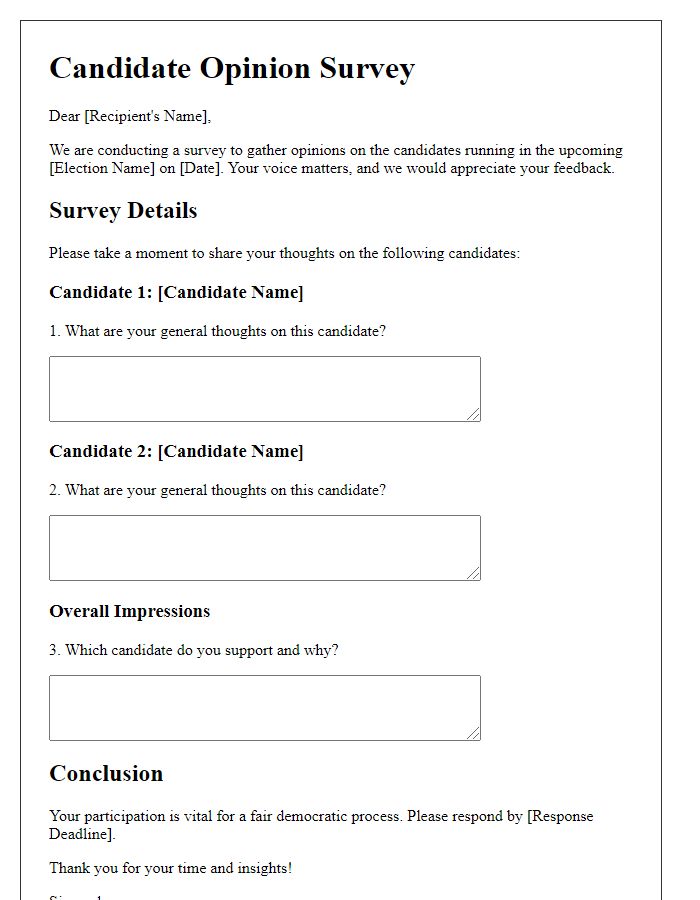


Comments